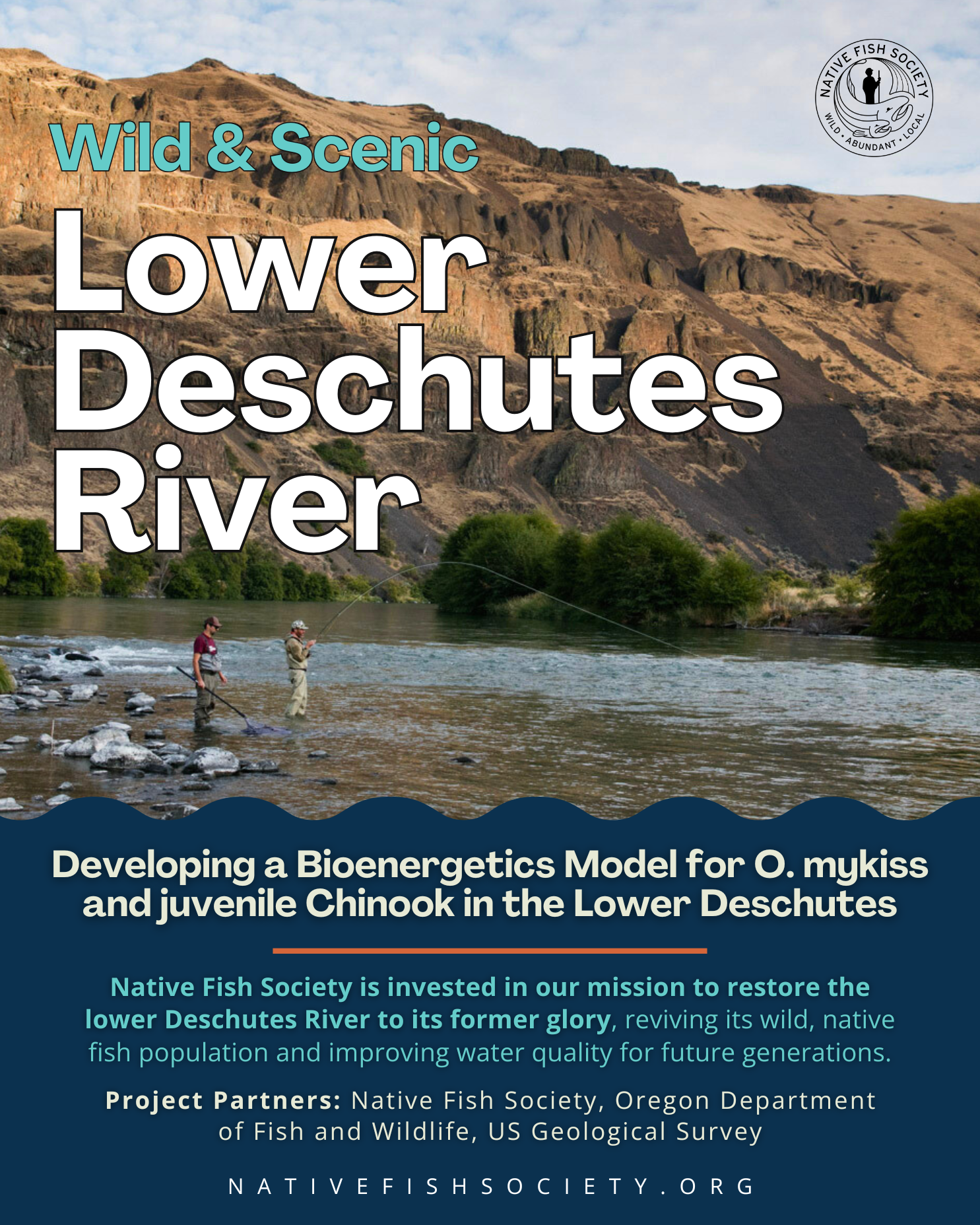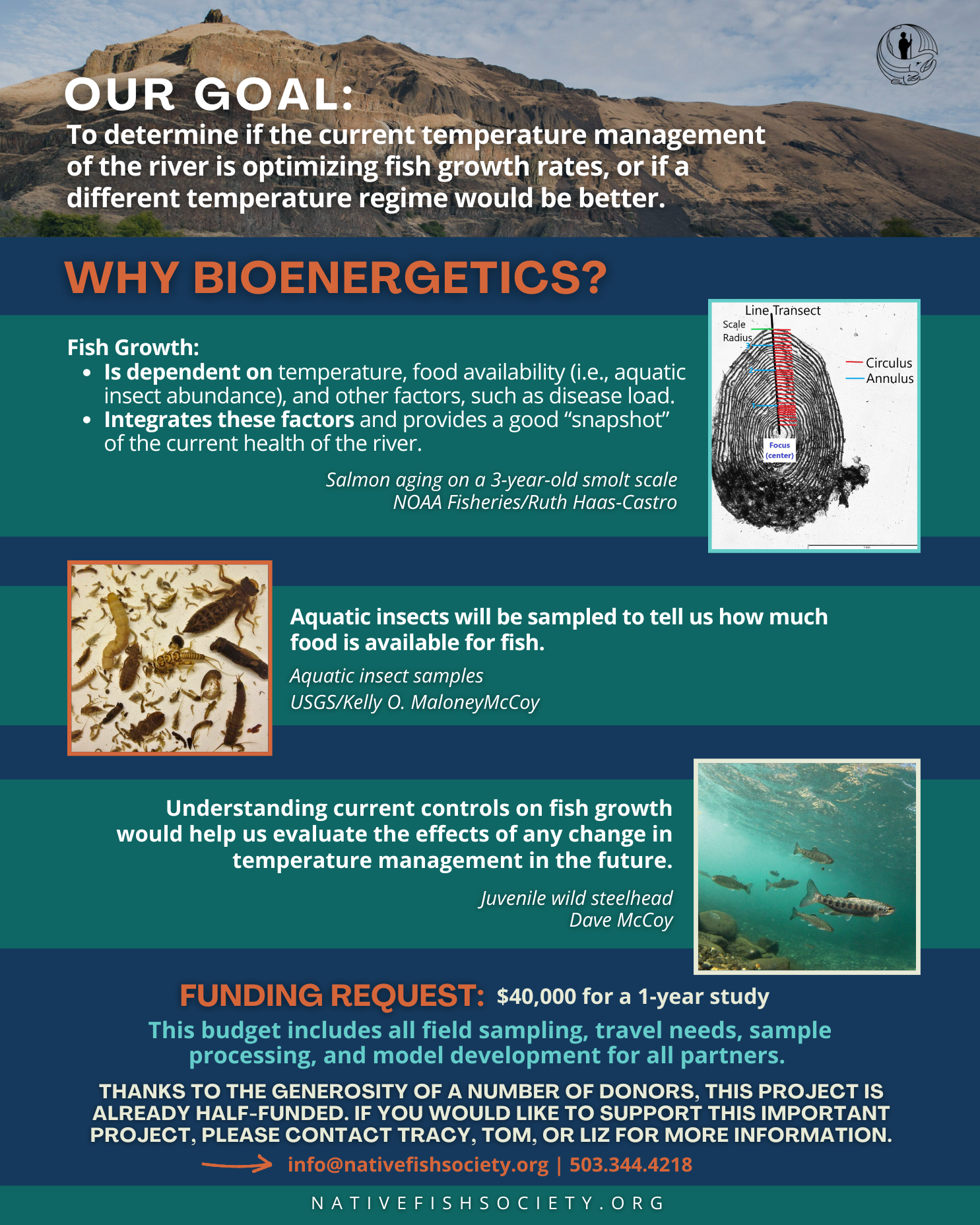Temperature and Fish Growth in the Deschutes
Since the Selective Water Withdrawal tower went into operation at Round Butte Dam on the Deschutes, spring water temperatures in the lower river are warmer than they were previously. The increase in spring temperatures has been a cause for concern for many anglers in the lower river who are worried about what this might mean for fish in the Deschutes, especially ESA-listed summer steelhead.
Fish growth and metabolism are controlled by water temperature, so growth rates are higher when water temperatures are warmer, assuming it’s not so hot that it is causing them stress and that there is enough food available to support growth.
But is this the case in the lower Deschutes? Or are the increased temperatures creating conditions that are potentially harming steelhead and other salmonids in the lower river?
To answer this question, Native Fish Society is partnering with scientists from the Oregon Department of Fish and Wildlife and the US Geological Survey to model the growth rates of juvenile steelhead and Chinook in the lower Deschutes. The results of this year-long study will tell us if fish growth rates are close to optimal or if fish would be better off with cooler temperatures in the spring.
We will be collecting scale samples from juvenile steelhead and Chinook that will allow us to quantify their growth rates (fish scales have rings, just like trees, that are bigger during faster growth and smaller during slower growth). We will also sample the aquatic insects floating in the river to estimate the food that’s available. Combining the resulting data with observed and modeled temperatures will allow us to understand if the current temperature regime is allowing fish to grow at their maximum potential, or if cooler temperatures would be better.
The results of this study will be used to inform our advocacy in the lower Deschutes and could be used as evidence for changing temperature management at the dam.
Thanks to the generosity of a number of donors, this project is already half-funded. If you would like to support this important project, please contact Tracy, Tom, or Liz for more information.


